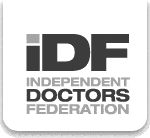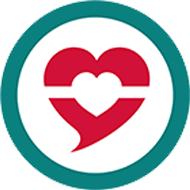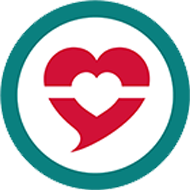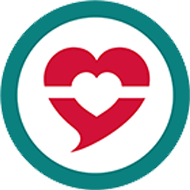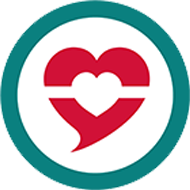Mr Ali Noorani, Consultant Orthopaedic & Trauma Surgeon, Shoulder, Elbow & Upper Limb
Mr Ali Noorani
Consultant Orthopaedic & Trauma Surgeon, Shoulder, Elbow & Upper Limb
Mr Ali Noorani MBBS BSc (Hons) MRCS FRCS (Trauma & Orth)
Consultant Orthopaedic & Trauma Surgeon, Shoulder, Elbow & Upper Limb
Mr Ali Noorani
Consultant Orthopaedic & Trauma Surgeon, Shoulder, Elbow & Upper Limb MBBS BSc (Hons) MRCS FRCS (Trauma & Orth)

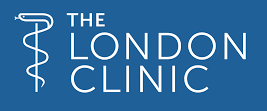
Areas of expertise
- Clavicle
- Elbow arthroscopy
- Frozen shoulder
- Rotator cuff injury
- Shoulder arthroscopy



Recommendations for Mr Noorani
These recommendations are for information purposes only. Doctors providing recommendations do so in good faith and are not responsible for clinical outcomes.


















Recommended by:
Make an appointment
Address
-
Harley Street Specialist Hospital
18-22 Queen Anne St, Marylebone, London, W1G 8HU
-
The London Clinic
20 Devonshire Place, London, W1G 6BW
-
30 Devonshire Street
30 Devonshire Street, London, W1G 6PX
-
Bupa Cromwell Hospital
164-178 Cromwell Rd, Kensington, London, SW5 0TU
-
Institute of Sport Exercise & Health
170 Tottenham Court Road, London, W1T 7HA
-
The London Independent Hospital
1 Beaumont Square, Stepney Green, London, E1 4NL
-
Telephone or video consultation
Virtual
Barts Health NHS Trust
Trust headquarters, Executive Offices, Ground Floor, Pathology and Pharmacy Building, London, Greater London, E1 2ES
BMI The London Independent Hospital (NHS)
1 Beaumont Square, Stepney Green, Greater London, E1 4NL
About Mr Ali Noorani
Mr Ali Noorani specialises in trauma and upper limb surgery and works at St Bartholomew's and Royal London Hospital, a tertiary referral centre for complex upper limb patients and the biggest trauma centre in Europe.
He is a globally recognised expert in treating sports injuries and trauma which has led him to treat a number of A-list actors and many elite sportspeople, including Premier League footballers, and a number of professional cyclists, boxers and mixed martial arts Ultimate Fighting Championship competitors. Patients are often referred to him from orthopaedic colleagues worldwide. As well as treating patients in London, Mr Noorani also practices in UAE and Pakistan.
Mr Noorani’s focus is always on getting patients back to their active lifestyles as quickly and painlessly as possible, which relies on a multidisciplinary approach involving physiotherapy and rehabilitation, and in many cases does not require surgery.
As a substantive Orthopaedic and Trauma Surgeon, specialising in trauma and upper limb surgery, he has expertise in complex arthroscopic shoulder surgery and upper limb trauma surgery. His interest areas include shoulder instability, sports injuries, rotator cuff injuries, shoulder arthroscopy, hand and wrist surgery and elbow surgery.
After completing his medical studies at the Imperial College School of Medicine (London) in the year 2000, Mr Noorani completed his orthopaedic and trauma training on the prestigious Royal London Hospital rotation. He then specialised in upper limb surgery, including trauma and sports injuries. He became a Fellow of the Royal College of Surgeons (FRCS Tr & Orth) in 2009. He then undertook further specialist fellowship training in shoulder, elbow and upper limb surgery at the coveted Upper Limb fellowship programme at The Royal Liverpool Hospital. This was complemented by 16 months of training at Stanmore’s Shoulder and Elbow Service in complex revision Arthroplasty and Instability and at the Peripheral Nerve Injury Unit. This was in addition to his experience in upper limb surgery, including complex trauma, at the Royal London.
Mr Noorani was awarded the prestigious Annual British Shoulder and Elbow Society Fellowship in 2010, and the equally esteemed British Orthopaedic Association Fellowship in 2011. He used these fellowships to gain further valuable training in upper limb and trauma surgery in the US, at Harvard University, the Mayo Clinic, Columbia University, and the Rothman Institute. He was also awarded an AO trauma fellowship to Salzburg. He is the founding member of the Royal London Orthopaedic and Trauma Society and the Barts Orthopaedic Fund. He is on the education board of the European Society for Shoulder and Elbow Rehabilitation (EUSSER).
He is a recognised educator and clinical supervisor has been frequently published in peer-reviewed journals and carried out research in several areas including instability. He is on the review board for the Journal of Bone and Joint Surgery and has been a principal investigator on several multicentre randomised controlled trials.
Mr Noorani is also a shoulder surgeon at the BMI London Independent and practices at the London Institute for Sports Exercise and Health (ISEH), the only International Olympic Committee (IOC) recognised centre in UK. As the upper limb surgeon for the Elite Sports Concierge Service, he tends to upper limb injuries for several London professional sports teams. He was also the UK team doctor for the American National Basketball Association (NBA) and the orthopaedic doctor for American National Football League (NFL) and the Rugby World Cup 2015.
Mr Noorani is the founder of three companies: The Regenerative Clinic, The Harley Street Speciality Hospital and Orthopaedic Specialists. He serves as Director of Global Strategy for all three companies. For more information visit O-S ORTHOPAEDIC SPECIALISTS.
Areas of expertise
- AC joint surgery
- Arm pain
- Arthritis
- Arthroscopic subacromial decompression
- Biological therapy
- Broken collarbone
- Bursitis
- Carpal tunnel surgery
- Carpal tunnel syndrome
- Cartilage repair
- Clavicle
- Cubital tunnel syndrome
- Cysts
- De Quervain syndrome
- Dupuytren’s contracture
- Elbow arthroscopy
- Elbow pain
- Elbow replacement
- Epicondylitis (tennis elbow)
- Fracture
- Fractured elbow
- Fractured humerus
- Fractured shoulder
- Frozen shoulder
- Ganglion cyst
- Hand arthritis
- Hand fracture
- Hand injury
- Hand nerve repair surgery
- Hand surgery
- Hand tendonitis
- Injuries diagnosis
- Joint pain
- Joint preservation surgery
- Joint replacement
- Lipogems
- Median nerve
- Minimal access surgery (keyhole surgery)
- Muscle injuries
- Osteoarthritis of the elbow
- Rotator cuff injury
- Rotator cuff surgery
- Scaphoid bone
- Scapholunate ligament
- Shoulder arthroscopy
- Shoulder dislocation
- Shoulder instability
- Shoulder prosthesis
- Shoulder replacement
- Shoulder surgery
- Shoulder tendonitis
- Skeletal dysplasia
- SLAP tear
- Sport surgery
- Sports injuries
- Sternoclavicular joint
- Stiff hands
- Supraspinatus tendon tear
- Tendinopathy
- Tendon injuries
- Tendonitis
- Trigger finger
- Ulnar nerve entrapment
- Ulnar nerve surgery
- Wrist arthrodesis
- Wrist arthroscopy
- Wrist denervation
- Wrist fracture
- Wrist surgery
Frequently asked questions
What are the common symptoms that your patients tend to present with?
Most of my patients tend to be presenting with upper limb problems, i.e. problems of the arm, specifically the shoulder and the elbow which is my expertise. I tend to see patients who have had trauma, as well as patients who have more sporting-related injuries and/or wear and tear problems.
There are four common symptoms that patients present with. Most patients present with pain. Some patients present with weakness of the shoulder or elbow. In some cases, patients present with either a shoulder being too stiff or being unstable, i.e. shoulder that pops out of joint.
To answer your question about the four commonest symptoms that patients present to me in clinic, it will usually be a shoulder or an elbow that is either too painful, too stiff, too weak or unstable or a combination of the above four symptoms.
What are the treatments that you're able to offer your patients?
I emphasize treatments to be done in a multidisciplinary fashion. As you may know, I sit on the education committee for EUSSER (The European Society for Shoulder and Elbow Rehabilitation). My treatments tend to be done in combination with physiotherapy because I know that surgery, by itself, is often not necessary for most patients. When it is actually necessary, we still need to combine it with some really excellent physiotherapy.
If patients come and see me, they should expect an accurate assessment and diagnosis. I actually tell them what's wrong with them. A lot of the times, that is enough for the patient because, for most conditions, patients just need to know what's wrong with them and they don't need actually a physical treatment for it.
Treatment options include rehabilitation, which can be with or without other forms of treatment. Everybody is getting physiotherapy, but in addition patients may get some simple injections, whether they are steroid injections or they are injections of biological treatments that enhance healing and, in some cases, patients may require surgical intervention for me to do lots of different kinds of surgery. However, the exact treatment really has to be tailored according to what the patient presents with.
In my practice, although I see the tip of the iceberg, I see patients who have difficult problems that have not been resolved with more conservative treatment. I would still like to proudly say that less than 20% of my patients who come and see actually need surgery.
What are your areas of sub-specialist interest?
My subspecialist interests are in shoulder and elbow surgery. Within this field, there are several things I do that I really super-specialise in.
One is, as an orthopaedic and trauma surgeon based in a big tertiary referral centre, i.e. Royal London Hospital, which is part of Barts Health NHS Trust, I get to see a lot of patients from everywhere, including from other hospitals and from other surgeons. Hence, I get to see the very difficult cases.
I tend to see a tertiary practice, which means complex patients of the shoulder and elbow.
Within that, there is an emphasis on patients with trauma or problems related to previous trauma, as well as a significant proportion of sports injury problems of the shoulders and elbows. As you know, I look after a lot of elite and professional athletes as well when it comes to that.
I would like to say, in addition to that, I see all sorts of people. I will see the 90-year-old who has a painful shoulder due to arthritis and is looking for something simple to resolve her problem, as well as the 13-year-old who has dislocated the shoulder and requires an expert opinion before we set up a program for rehabilitation.
Professional memberships

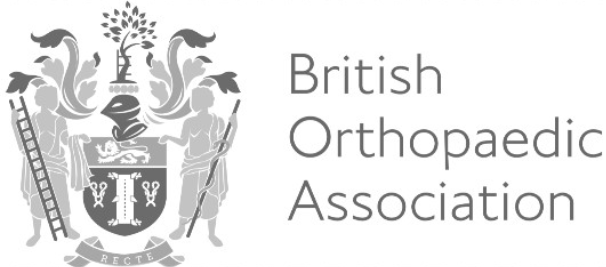

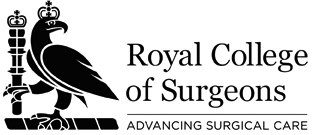

_1589199007382.png)
_n.png)
